It will take more than a worldwide pandemic to keep Amber Allen from bringing people together.
By Brianna Caleri, Photos by Rudy Arocha
When “social distancing” started becoming a household phrase, Double A Labs started building bridges. On March 6, Mayor Steve Adler canceled South by Southwest, the ultimate pride of Austin, for the first time in its 33-year history. Despite losing gigs and cash, Amber Allen slipped on her Burberry heels and got right to work. Just that week, Allen had been in three states and worked 115 hours. Three of the company’s projects were cancelled, Apple poached an employee Allen loved and the team had to get a contractor back to his home in Argentina within three days before flights were grounded.
“The world keeps turning, though,” says Allen, smoothly sliding into a recline on her convertible loveseat. “Isn’t that the life of an entrepreneur right there?”
Allen seems like the kind of woman to scoff at the idea that blonds have more fun, just to turn and coyly wink in agreement. She leaves voicemails opening earnestly with, “Hey, woman.” Right above the loveseat in her living room is a pink neon sign that reads, “Your princess is in another castle.” Her home on the edge of East Austin is tastefully cluttered with game consoles, portraits of musicians and album covers. Allen leans into every facet of her personality; her dualities keep her grounded while she stays on her toes.
Like her personality, Allen’s business is larger than life. Double A Labs produces everything from completely fabricated environments (virtual reality), to digital overlays (augmented reality) and actual environments rigged with AR triggers (mixed reality). The company’s three verticals—influencers, proprietary technology and events—fuel each other to create entire worlds for each new project. Double A’s job is not just to build the realms, but to invite people in. In the past six years, Allen and her team have reached 3 billion screens.
After a career in esports, Double A served as Allen’s outlet to continue to pursue the growing industry of extended reality. By now, the parallels and borrowings between athletics and gaming are endless. If the world can unite to watch people kicking a soccer ball, why wouldn’t spectators gather to watch even more superhuman feats be performed on screens? Esports has leagues, teams, coaches and players. In 2019, the New York Times highlighted an ex-captain of Denmark’s national handball team who was hired to coach an esports team. He broke stereotypes, helping gamers win by training them to eat healthy and exercise. By that logic, there’s nothing stopping traditional athletes from going digital. This year, as sports seasons crumbled under the obligations of social distancing, NASCAR held simulated races at virtual tracks. Gamers are entering the public eye as more than anonymous basement dwellers. They’re training, signing six-figure contracts, amassing fans and giving post-game interviews. The reach of esports is so vast that according to a documentary on the online multiplayer game League of Legends, one of Allen’s milestone projects, viewership of its 2015 finals outperformed the Stanley Cup finals, the World Series and the NBA finals combined.
Allen is acutely aware of the power of technology and harnesses it to entertain and educate. Taking a cue from the annual Puppy Bowl, Double A’s most impactful project to date was a live stream that reeled in 28 million viewers and sent more than 300 shelter dogs to new homes. To produce the “Puppy Rumble,” Double A partnered with Blizzard Entertainment and a variety of animal shelters (including Austin Pets Alive!) to build a virtual model of the Lijiang Tower. The set served as the puppy-bowl arena and promoted the launch of the game’s special Year of the Dog content. Adoptable dogs were introduced with up-close features and characters stats, building audience rapport that, over the course of two hours, led to a forever home for each player.
When Warner Brothers celebrated the 25th anniversary of the iconic sitcom Friends, it turned to Double A to interact with fans. The official app they developed paired custom digital stickers with a photo booth (allowing users to pose on the famous couch or behind the purple door), introduced them to an AR version of Marcel the monkey and tested their trivia knowledge. Double A also partnered with AT&T to drum up excitement for season two of the crime show Mr. Mercedes, a project that invited users to explore a complete set replica through an escape room-like clue hunt using VR, AR and high-tech display options. Pursuing education without abandoning its talents for entertaining, the marketing company also teamed up with local children’s book author Katie Jaffe to provide AR content triggered by illustrations in her STEM-centric book, Fly Fly Away, and partnered with Genentech Inc. to produce interactive diagrams on eye health and the spread of infectious disease.
“If we’re having fun and we’re learning truth,” says Allen, “it’s going to stick a lot longer than me preaching at you. If I tell you what you should be thinking—God, we already grew up our entire lives with that in school.”
Growing up in Longview, Texas, Allen felt passed over by the rest of the world. Exciting technology was always a decade behind in her small town. Now she thinks about her nephews in the area and wonders how they’ll be introduced to groundbreaking tech being built more than 250 miles away in Austin. She knows it takes a human connection to make new tech experiences stick.
“I believe early adopters and innovators will change the world,” Allen says. “And I think it’s my job to simplify that message so that people will not be scared of it.”
Allen’s father was a Baptist preacher, vice president of a Bible college and a prolific entrepreneur whose projects had an unpredictable lifespan. Her mother went back to school to become an accountant when Allen was a teenager, leaving Allen to entertain her siblings with Super Mario Bros. in between homework and chores. Having two traditional parents with conventional careers, nuance disappeared into clear divisions of right and wrong. Allen learned to treat everyone equally but started her career sheepish about sharing her ideas in rooms full of men. There were polite notions about how a woman should act that were no help in building an aggressive professional presence. Displeased with Allen’s improper left-handedness, her mother taught her to write with her other hand, leaving her both ambidextrous and often unintelligible on paper. In search of more to make right, the preacher and the accountant traveled every weekend with their three children to serve meals, share Bible stories and visit nursing homes. After serving the world, the kids would end the night playing video games at the local Pizza Hut.
Allen’s favorite—both then and now—is Galaga, the classic arcade game of space shooters. It’s so special to her, she has a console in her home. She finds 2D gaming less stressful, although she’s still easily flustered when evading fire from enemy craft. It’s a good one for dates, she says, because you don’t have to pay too much attention, and you don’t have to let the boys win.
Like father’s wandering entrepreneurship, like daughter’s college education: Allen studied a variety of topics in college and, acting on an opposite impulse, pursued the stability of the corporate world after graduation in lieu of striking out on her own. She landed an advertising job where one major client, Reebok, introduced the self-proclaimed nerd to the sports world. Another client, Disney, took her on as an employee. She worked through the ranks of Disney to join Warner Brothers, learning the importance of an airtight team to a venerable company. Slowly, Allen became comfortable voicing her ideas instead of assuming a higher up in the gaming community had already beat her to it. For more than five years, she managed sales and ran global gaming events for franchises like Mortal Kombat and Lego. Her bosses, recognizing her entrepreneurial spirit, gave her access to a wide range of projects. Still, she was bored with just one job.
When Riot Games recruited Allen as a strategist, she had a chance to create a new vertical—almost a brand-new business—using someone else’s brand and capital. Her charge was building an events presence in esports, leading the first-ever U.S. arena event as an executive producer. She expanded into merchandise and found a rhythm within the Riot team that gave her the freedom to create anything she wanted. Riot gave Allen the tools and the practice she needed, and the final push to branch out on her own.
In 2013, Allen started as a consultant, but quickly realized the companies available for hire weren’t offering the quality she came to expect after 15 years in-house. The fix was easy: Hire the people she was used to working with. Starting with people who had been laid off, Allen built an increasingly competent team, and could eventually afford to entice team members from her old clients. By 2017, Double A had experienced enough success to operate from multiple offices. Allen moved the headquarters from Los Angeles to Austin, with the hopes of bringing tech jobs to her home state. The company soon outgrew a common entrepreneurial mistake Allen made early on: hiring friends and family.
“[When] you love what you do, you want everyone you love to be in it,” she says.
The lines between personal feelings and professional responsibilities were too hard to draw on both sides. Now, instead of trying to assimilate friends and family into an egalitarian workforce, she’s turned her workforce into a family of its own. Many of the team members who work closest to her have been with the company since the beginning. When a client withheld $1.5 million, some employees offered to cut their salaries. (Allen sold her house and applied for a line of credit.) She recalls another CEO advising her not to think of her employees as friends, and her voice breaks as she vows never to take his advice.
Ahna Boley, director of production at Double A, has been with the company since the start, and credits her lasting career there to Allen’s flexibility. “Even though she’s very driven, she also really cares about people and [making sure] they’re pursuing what they want,” Boley says. Allen checks in with her staff, ensuring everyone feels their talents are being used and they’re getting personalized help where they need it. She’ll even help find a place for them at another company when it’s time to go. Back to the employee leaving for Apple, Allen was not feeling bitter, but bittersweet. Boley is rethinking her own role as the pandemic gives the company a chance to shift into even more tech-centric opportunities. To resume some sense of normalcy, Boley and Allen have continued the walks they would take through the cemetery near the office for some much-needed “quiet time” between friends.
It would be hard not to be friends with Allen. Double A’s company outing in March, orchestrated last-minute to make use of a non- refundable SXSW reservation at the Four Seasons downtown, was certainly a last hurrah for many before the city shut down. Allen pinged around the tables, laughing like the birthday girl. She swooned while Boley sang “Shallow” and took credit for convincing her to get up there. The acoustic guitarist was there as a personal favor. As the night wound down, she earnestly gathered tips from the photographer on posing naturally. She wandered off just early enough for it to be very fashionable, waving off goodbyes. It would be the last some employees saw of her before COVID-19 forced the team to work from home.
Work-from-home calls can be a blur of screens and status updates but despite being apart, the team hasn’t slowed down. Alienware, a computer hardware company owned by Dell, is hosting worldwide product demos in Double A’s “Phygital World.” (Think “physical” plus “digital.”) YouTube partnered with the company to bring its insider dinner parties from influencers’ homes to a digital space and, alongside clients focused on pivoting during event cancellations, Double A is lending its connecting powers to a more direct pandemic response. The company is producing custom bracelets with logos that function as AR triggers, sending users to Austin philanthropist Kathy Terry’s charity website inLieu. Another friend of Allen’s offered a warehouse setup complete with high-fidelity audio equipment and wall-size LED screens, left behind as tours shut down. Artists enter to perform one at a time, taking their quarantine livestreams from acoustic couch sets to full-blown benefit concerts, where 25 percent always goes back to the city of Austin.
Allen is tired, but she hasn’t slowed down or lost touch. She’s taking guitar lessons. She’s on 11 committees, boards and societies. She spent the semester teaching Intro to Augmented Reality & Modern Digital Media at the University of Texas. Mentorship is important to Allen, especially to women and girls, and she’s realized she can still be a “good Southern woman” without shrinking into the background. That used to mean staying out late to bond over the hardships of entrepreneurship over beers. Now, it means 22 meetings in a day, and a virtual happy hour for morale.
Connection is everything, in person and through screens. It bridges gaps between false cultural opposites: gamers and jocks, men and women, even art and science. Allen points out the power of fact-checking through Amazon’s Alexa, connecting us with all the world’s knowledge. She laughs at the conception that gamers are antisocial, while games like League of Legends connect them with players all over the world. She befriends women who have trouble connecting with others over their love of gaming, for fear of judgment and gatekeeping. For a marketing company, fun is a tool for mining truth. An educational game can teach in ways that stick better than a lecture, an online multiplayer battle game can connect the world in a new language and an AR event can make social distancing feel much less distant.
“It’s not just about the 500 people in the room,” Allen says. “It’s about the 5 million that need to see it.”
Five Things I Wish Someone Told Me Before I Started As an Entrepreneur
1. “Understand the difference between cash flow and revenue.”
Revenue comes from service fees, but cash flow is how much is in the bank. It’s important to keep them straight when you’re bootstrapping—growing your business without investors—and deciding how much to reinvest.
2. “Think and act like the company you aspire to be like.” Amber Allen grew up admiring Disney, and she liked working for them. She thought the team was polished. Now she uses the principles she learned there to make Double A function like a multibillion-dollar company.
3. “It’s more important what you say no to than what you say yes to.”
A growing company sees more opportunities every day and needs to choose its projects wisely. Learning to turn projects down means staying focused instead of wearing yourself thin.
4. “Leadership means you focus on the good for the entire team.”
A functional team can’t place too much emphasis on one member. Siblings and best friends don’t take precedence over the company.
5. “Remember why you started the company and connect with the people who re-energize you.” When Allen moved to Austin two years ago, she had forgotten what it was like to play because she was so absorbed in her business. Now she knows she needs a pause button to be a better boss.
Clothing courtesy of Estilo, 2727 Exposition Blvd., estiloboutique.com; Ted Baker, 11501 Century Oaks Terrace, tedbaker.com; Neiman Marcus, 3400
Palm Way, neimanmarcus.com; Catherine Deane, catherinedeane.com. Shoes and jewelry, model’s own.



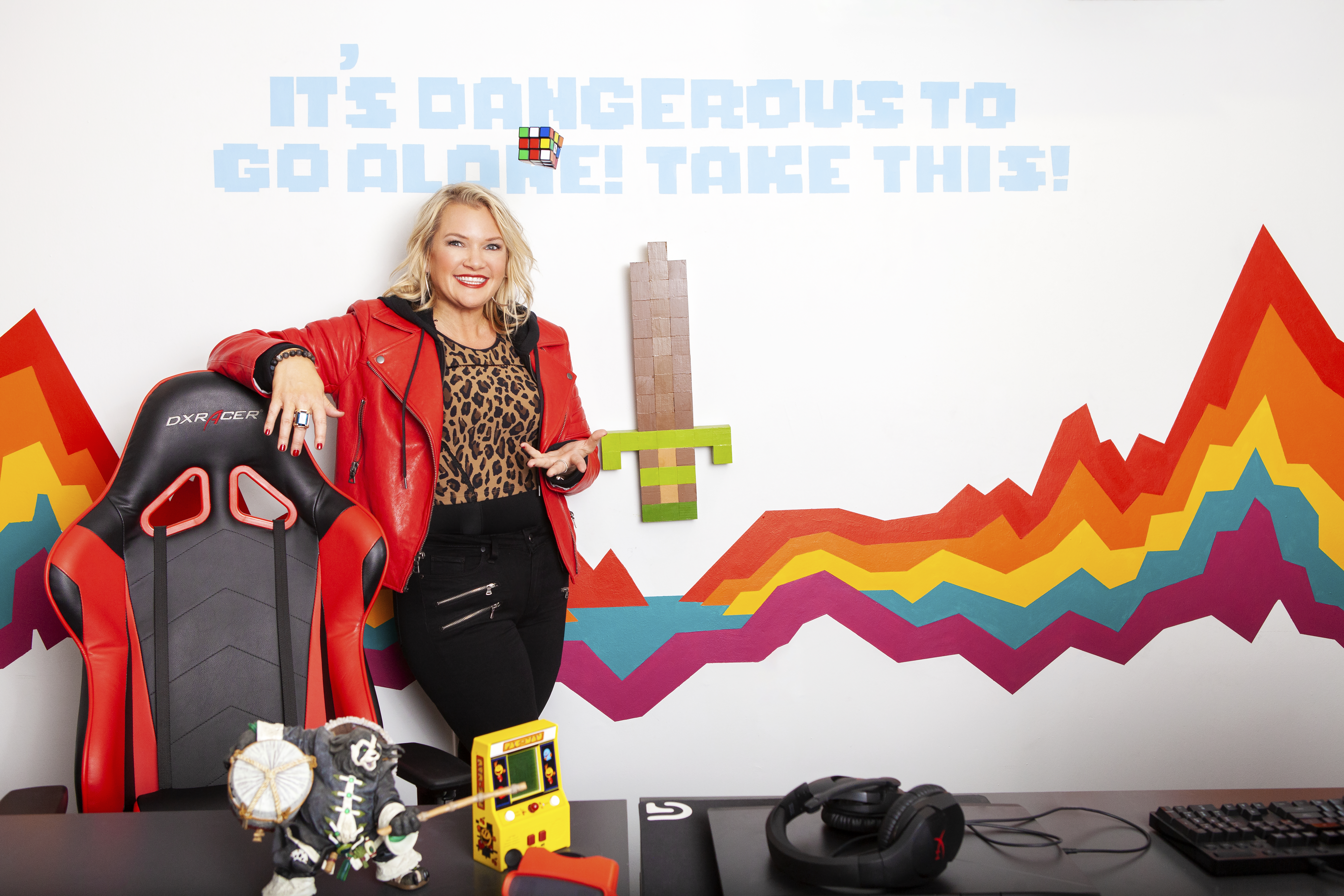
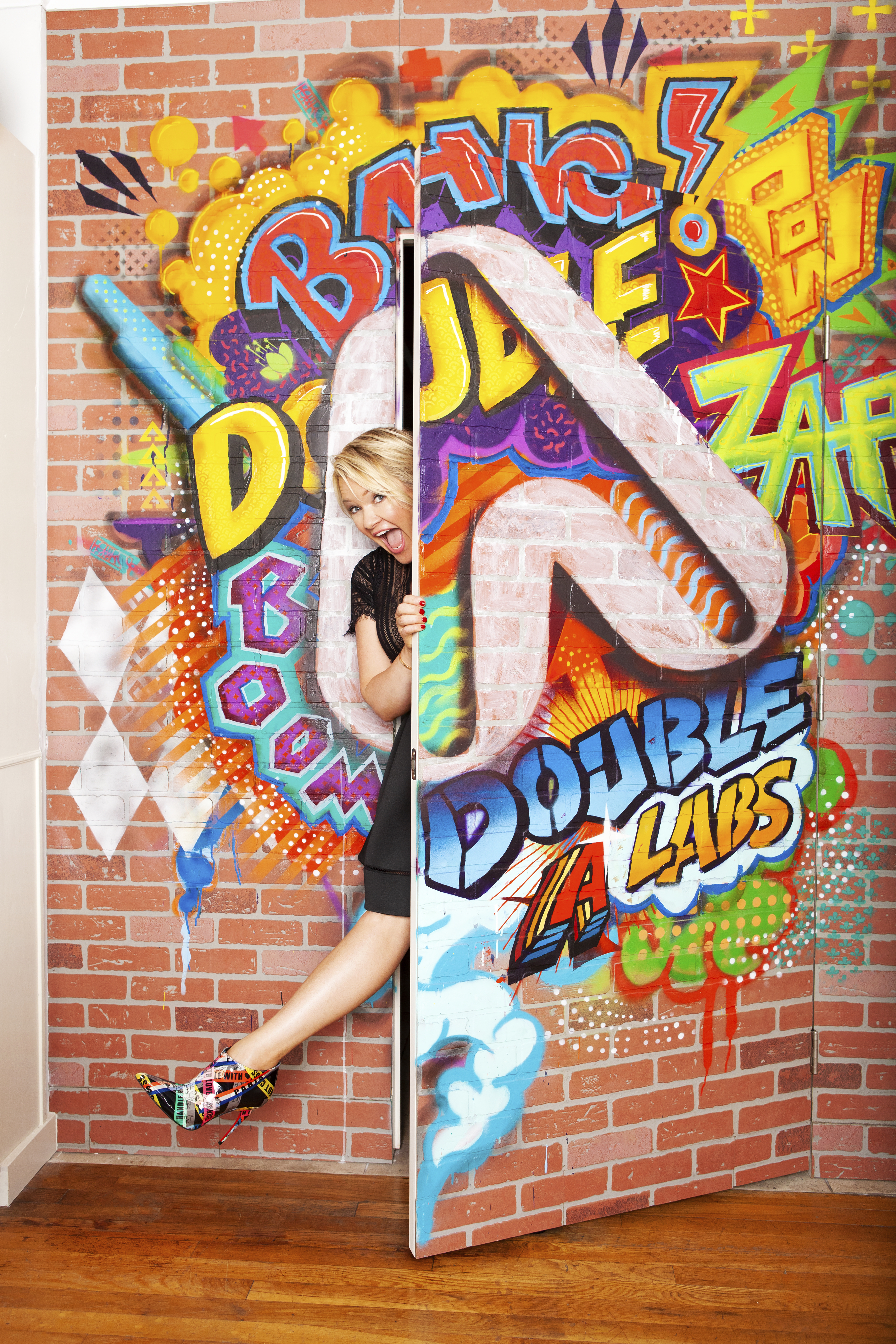
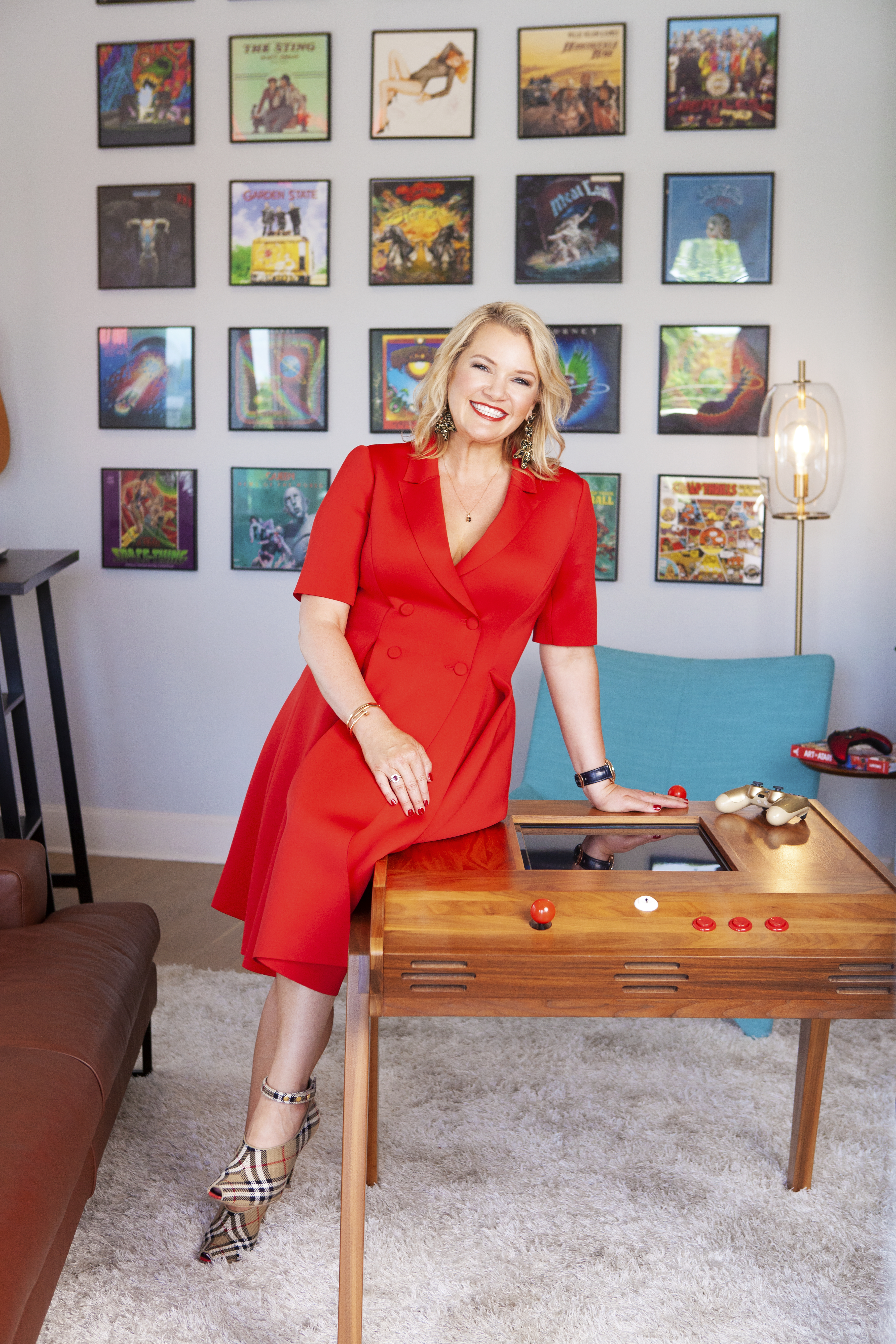
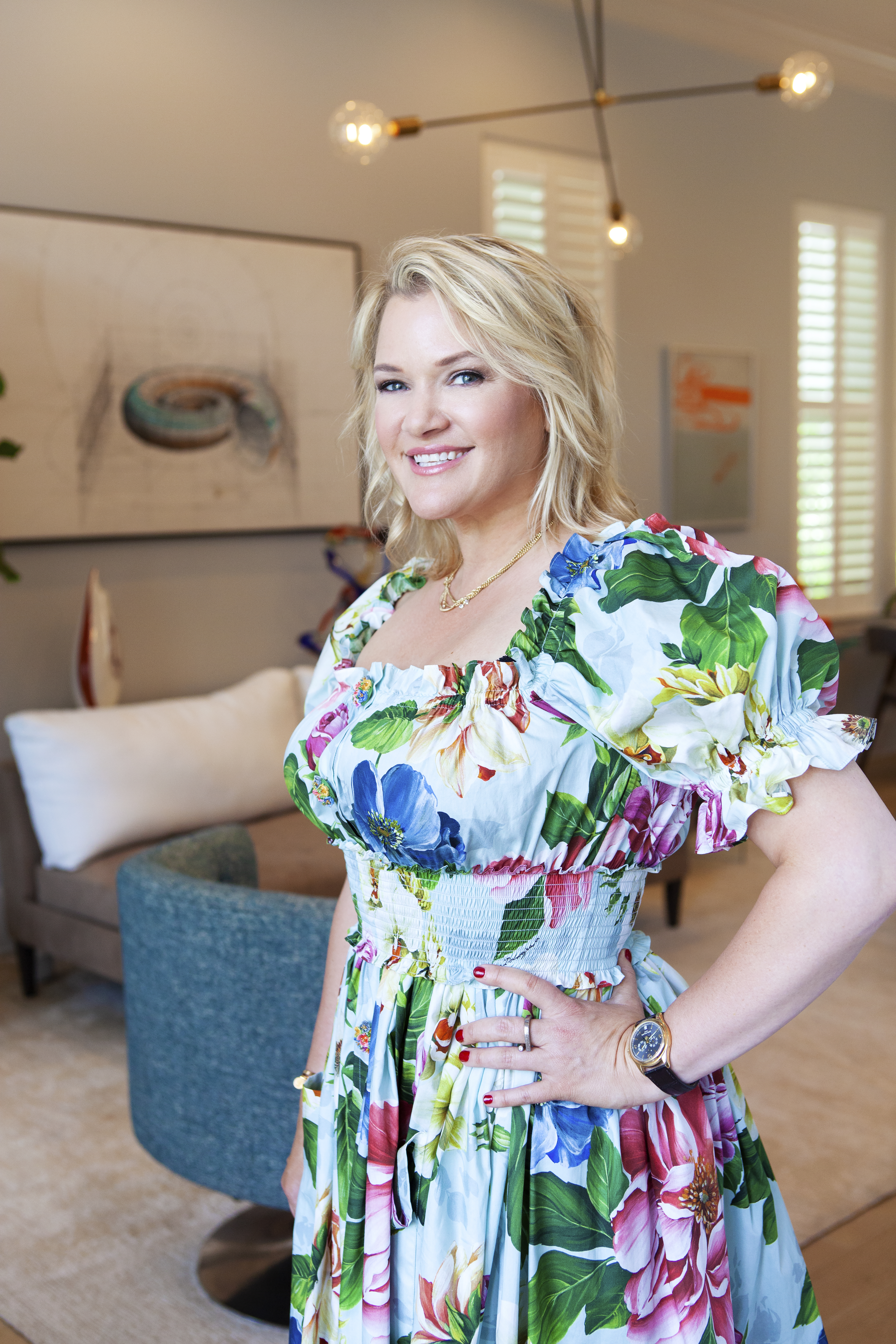
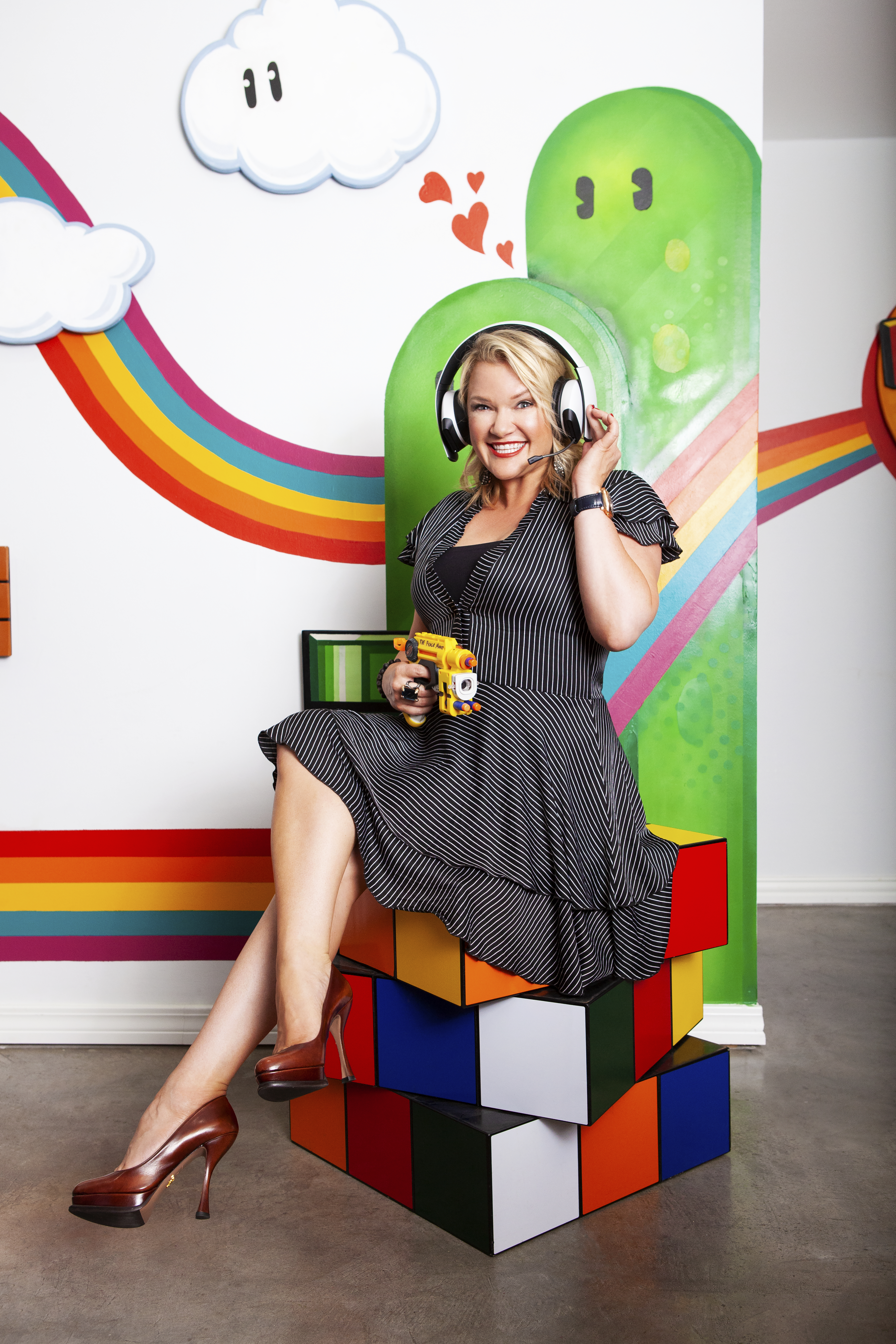
1 Comment
Наша ежесуточная подборка событий позволит вам всегда быть информированными на тему интересных событий.
https://pitersk.ru/articles/2024-08-20-7-ocharovatelnyh-lukov-s-tsvetochnymi-platyami-zimmermann/